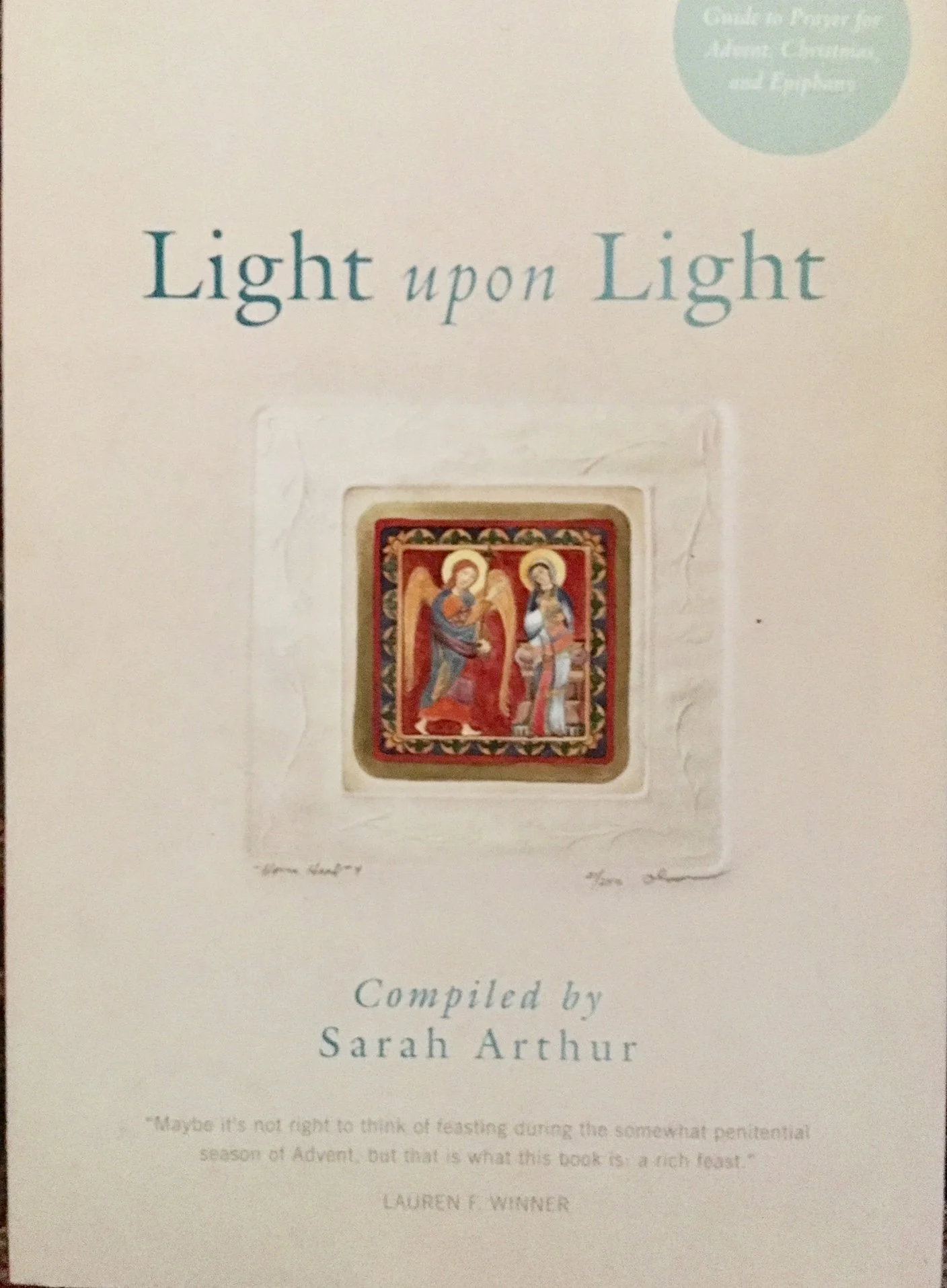Arthur: Literature for Advent, Christmas, and Epiphany
“Many of us, when charting the timeline of our lives, can point to a moment when a story or poem happened.” —Sarah Arthur, in Light Upon Light (Paraclete Press 2014) p. 9.
Light upon Light is a literary guide of daily and weekly readings and prayers by well-known authors for the liturgical seasons of Advent, Christmas, and Epiphany, compiled by Sarah Arthur. She has also written similar companion guides for the long Pentecost season (At the Still Point), Lent, and Easter (Between Midnight and Dawn). Arthur emphasizes that this is not only a guide to prayer during a time of year when our lives become too busy, but also a literary guide to prayer. We remember and recall poems, scripture, and fiction that moved us in our daily lives. Arthur believes literature can make a difference daily when we need it most.
The readings begin with the first Sunday in Advent and end the week of Ash Wednesday.
Arthur hopes to open our imagination as she exposes us to brief excerpts or short works of writers well known to us, as well as some authors we may not know but should! Arthur warns that we should encounter an alert in the readings of this anthology: “Warning: Powerful Spiritual Moment Ahead!” Finally, Arthur suggests that we digest each lesson not as something for our English Literature class or even for pleasure, but as liturgical pieces for worship and prayer.
Each week begins with an outline for the week of an opening prayer, scripture readings, readings from literature, a place of personal prayer and reflection, and a closing prayer to use for that week. Arthur suggests applying the ancient principles of lectio divina or divine reading that we have used in reading scripture now when reading poetry and fiction. We read the passage, meditate on it, and pay attention to a word or phrase that connects us to a place resting in God’s presence. My experience has been to carry that word or phrase during that day or perhaps the whole week. Since this process is no longer used for scripture, she has christened it holy reading or lectio sacra.
I invite you to join this journey with Sarah Arthur during the extraordinary seasons of Advent, Christmas, and Epiphany, with a unique spiritual practice of daily worship and prayer using well-known literature.
Joanna Seibert https://www.joannaseibert.com/





